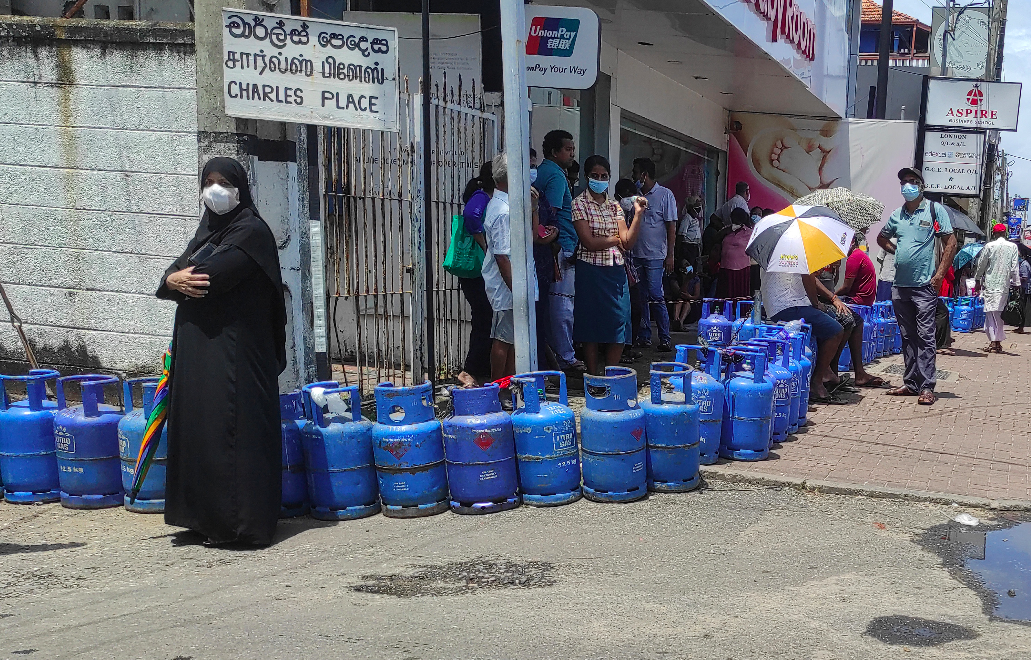Economic crisis in Sri Lanka: more than 54 per cent of households are in debt
A government report shows high levels of household debt. The main cause is a drop in average monthly income, forcing households to go into debt to meet daily food needs; for most, three meals a day are not guaranteed.
Colombo (AsiaNews) – Some 54.9 per cent of Sri Lankan households are in debt, this according to a government survey, symptomatic of the country's worst economic crisis since independence in 1948.
Indebtedness has an inevitable impact on families, affecting their finances and stability. More than 17 per cent have had to take out loans to build or repair their homes, while most households are grappling with several challenges every day, such as how to manage the money they have.
The Household Survey on the Impact of the Economic Crisis 2023 shows that 14.2 per cent of people over the age of 15 had lost their jobs since March 2022, and that unemployment is higher among men than women.
Because of unemployment, household debt has led to financial uncertainties that force households to borrow to cover essential expenses, increasing the debt burden.
People have been affected across the country, in cities and rural areas, with a majority pawning jewellery, selling vehicles and furniture, and some mortgaging their property, including their home.
The report notes a variation in household debt according to different lending sources. Most debt comes from mortgages (31.0 per cent), followed by banks (21.9 per cent) and money lenders (9.7 per cent).
About 22.3 per cent of debt comes from loans obtained to satisfy daily food needs, a sign of serious financial difficulties in meeting basic needs.
About “17 per cent of indebted households acquired loans to build or repair their homes,” said Nihal Mayadunne, Prashanthi Herath and Sampath Dissanayaka speaking to AsiaNews.
“Last year, the average monthly expenditure of about 91 per cent of total household units increased, while 7 per cent of the population changed health treatment system,” explained the three scholars who are currently surveying households for a research project.
“The primary reason for reducing their average monthly expenditure, accounting for 77 per cent of responses, was to align expenses with the decrease in income. Households have adjusted their spending patterns to match the reduction in overall income.”
In the districts of Gampaha, Kandy, Nuwara Eliya and Jaffna, “about 600 employees in a garment factory in Katunayaka Free Trade Zone lost their jobs when a leading apparel factory was closed, a few months ago,” this according to retired senior government officials.
For these workers things could get any worse. Although they received compensation, it was not even enough to cover household expenses for three months,.
“As they are unable to find employment elsewhere, they had to return home. Due to the economic crisis, there are no employment opportunities in their villages too. So, the only option is to sell their furniture. Some have mortgaged their houses too.”
The economic crisis has had a significant impact on employment in several sectors, especially construction and the apparel industry, affecting small and medium-sized enterprises.
According to the Sri Lanka Labour Force Survey, most households, especially those in cities, have been adversely impacted by debt, with many people reduced to two or even one meal in a 24-hour period.







.png)










